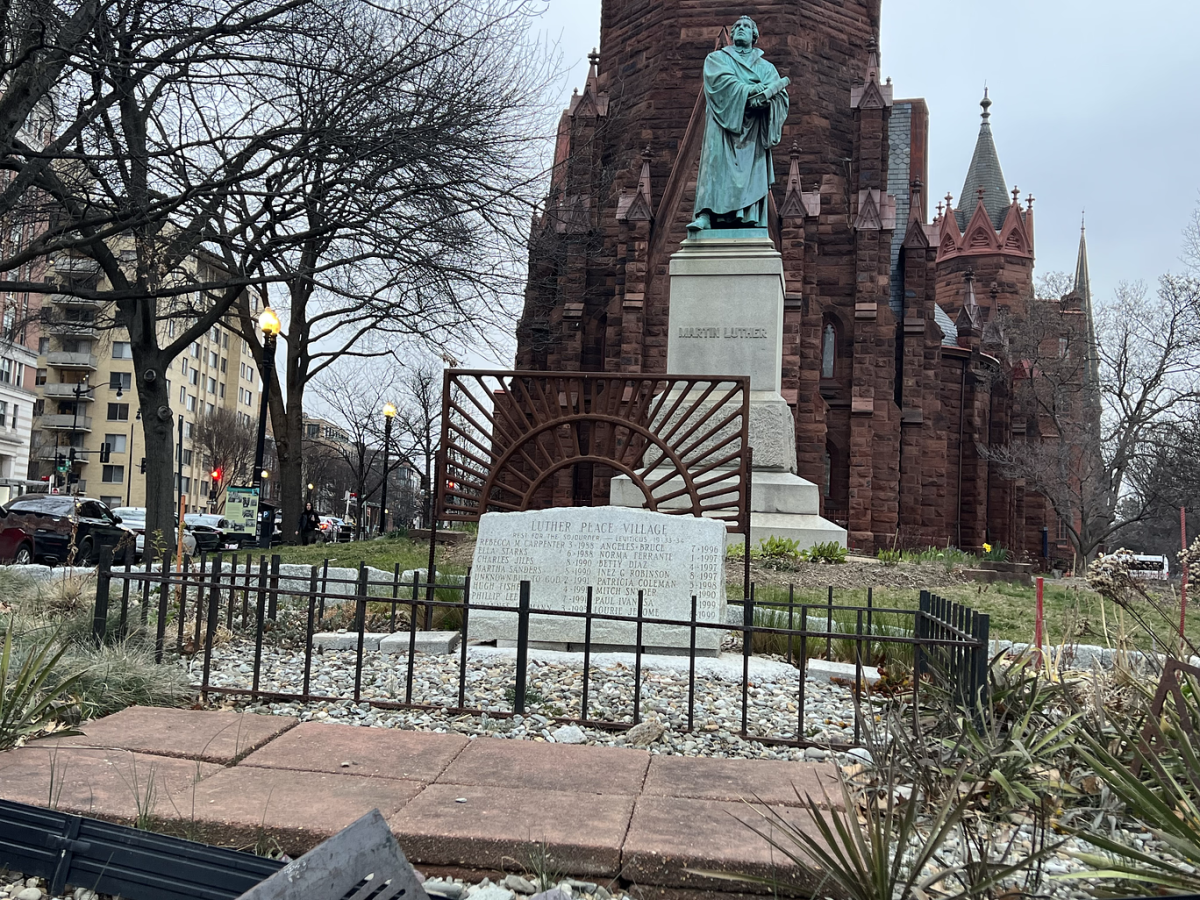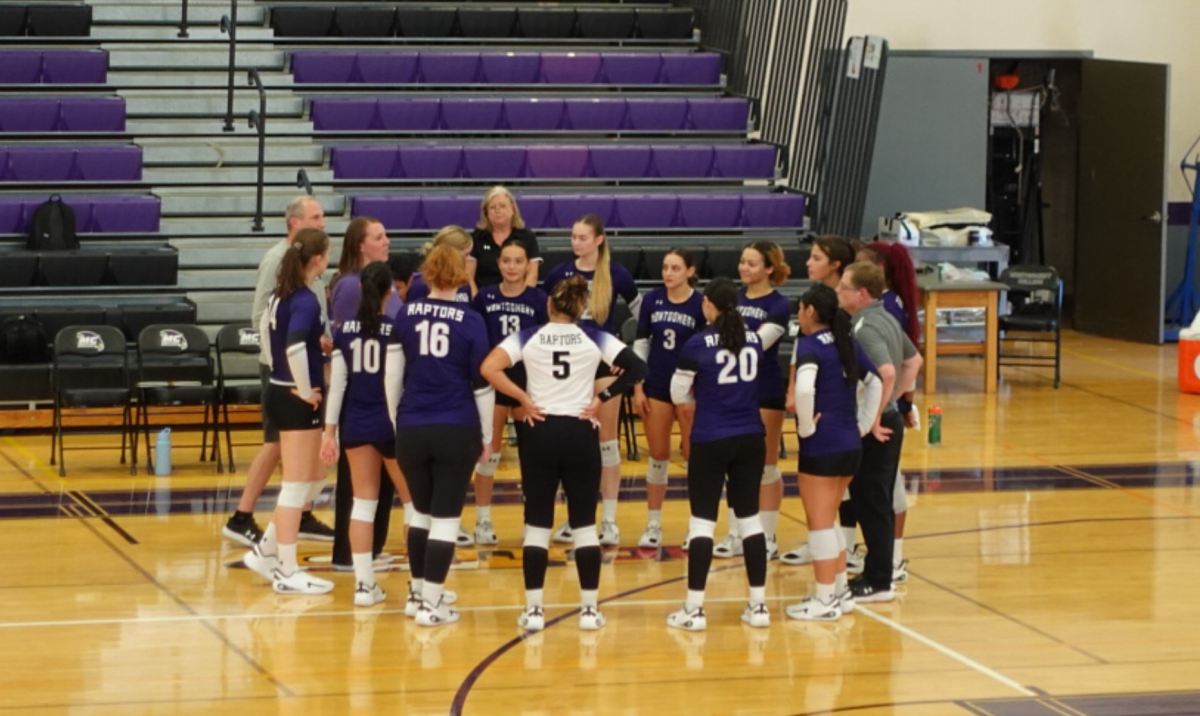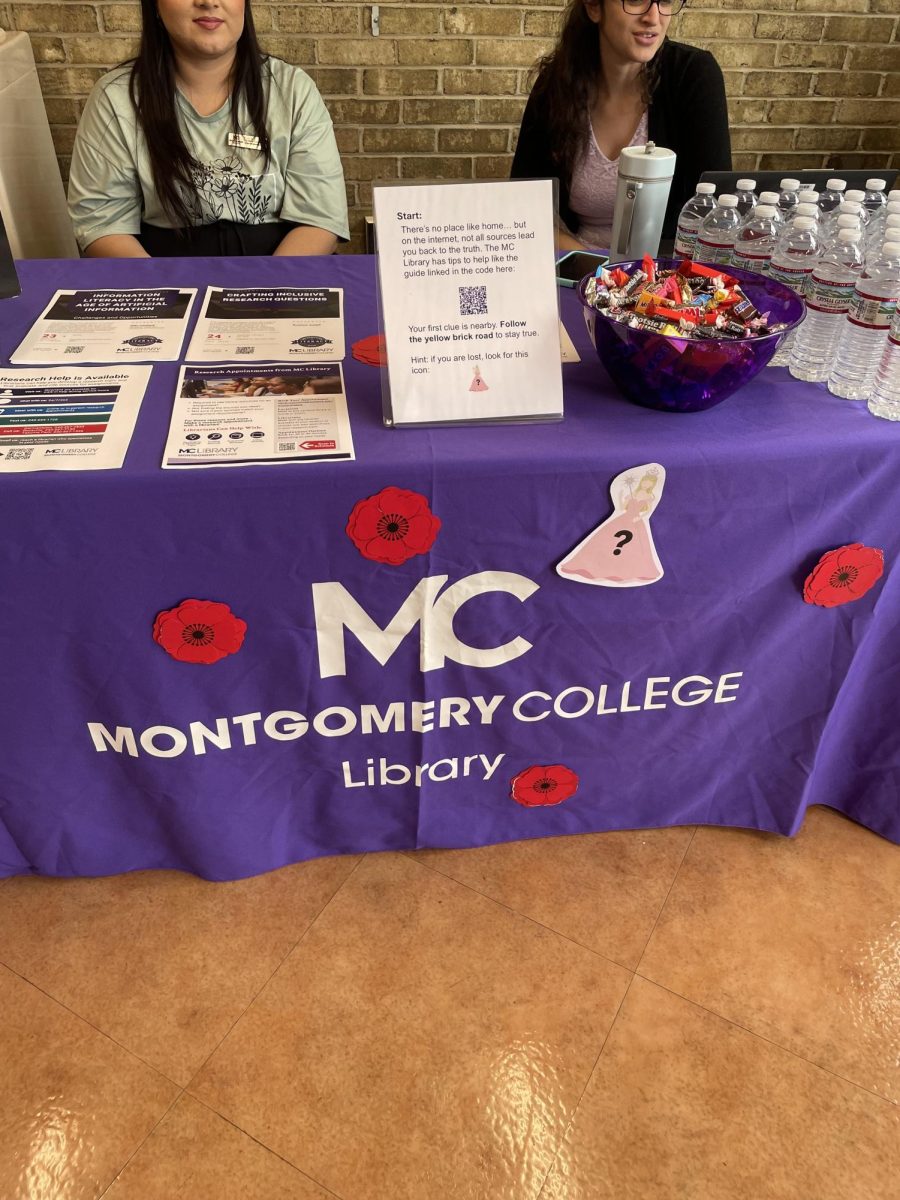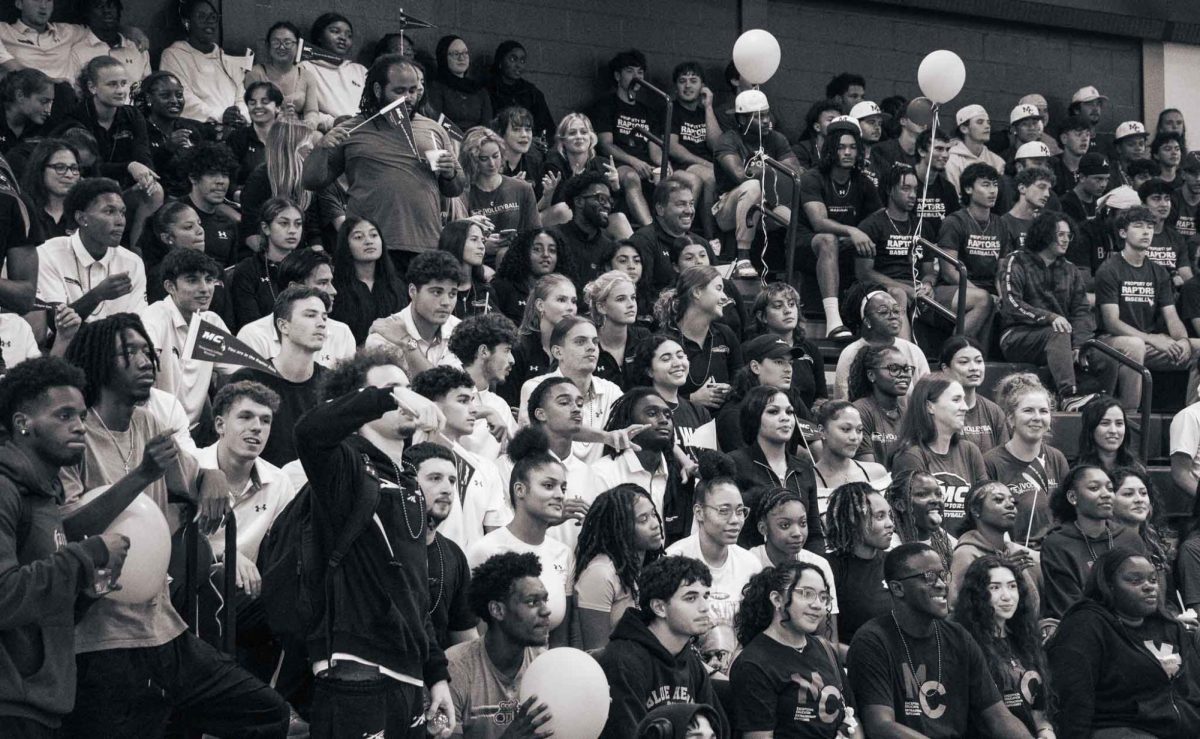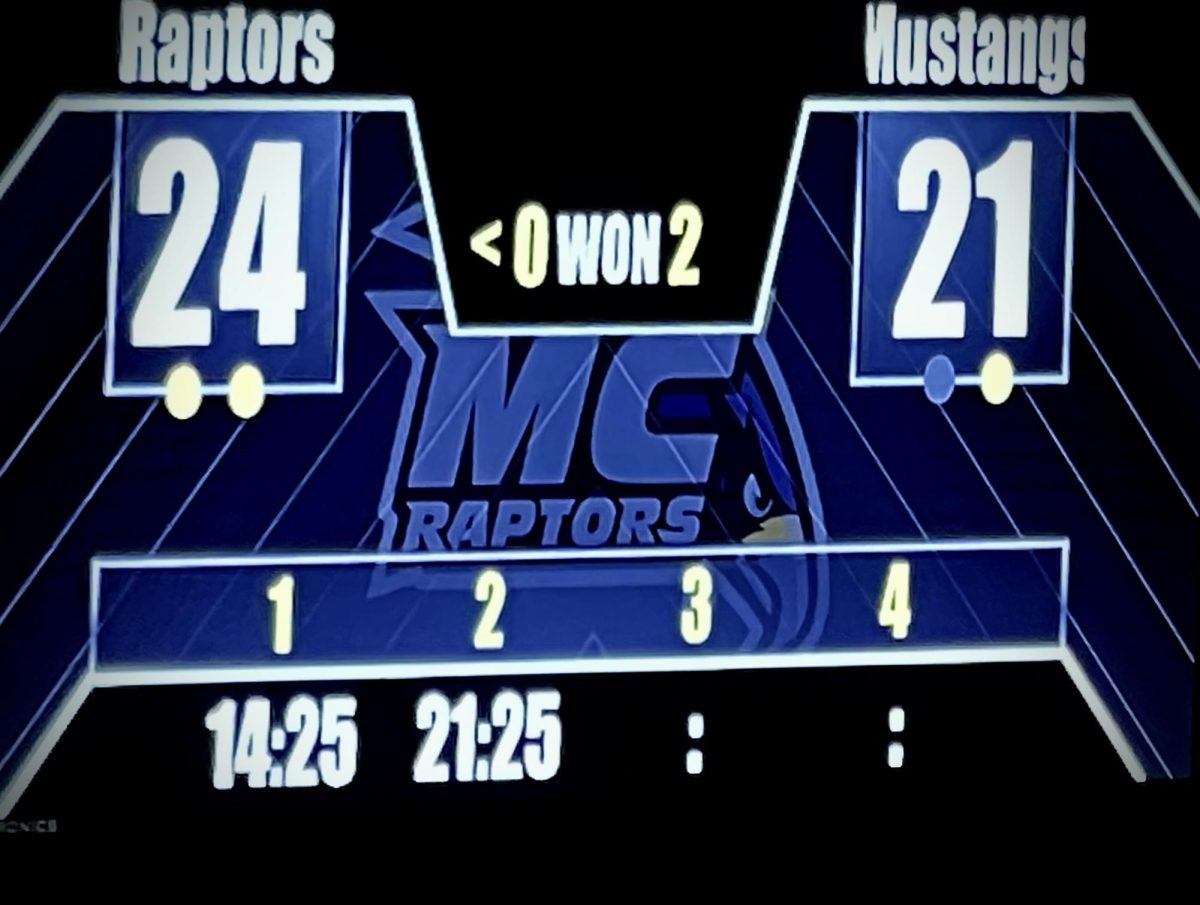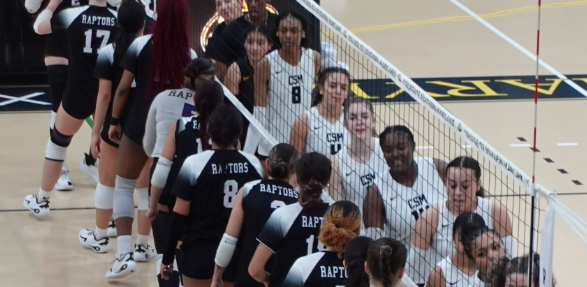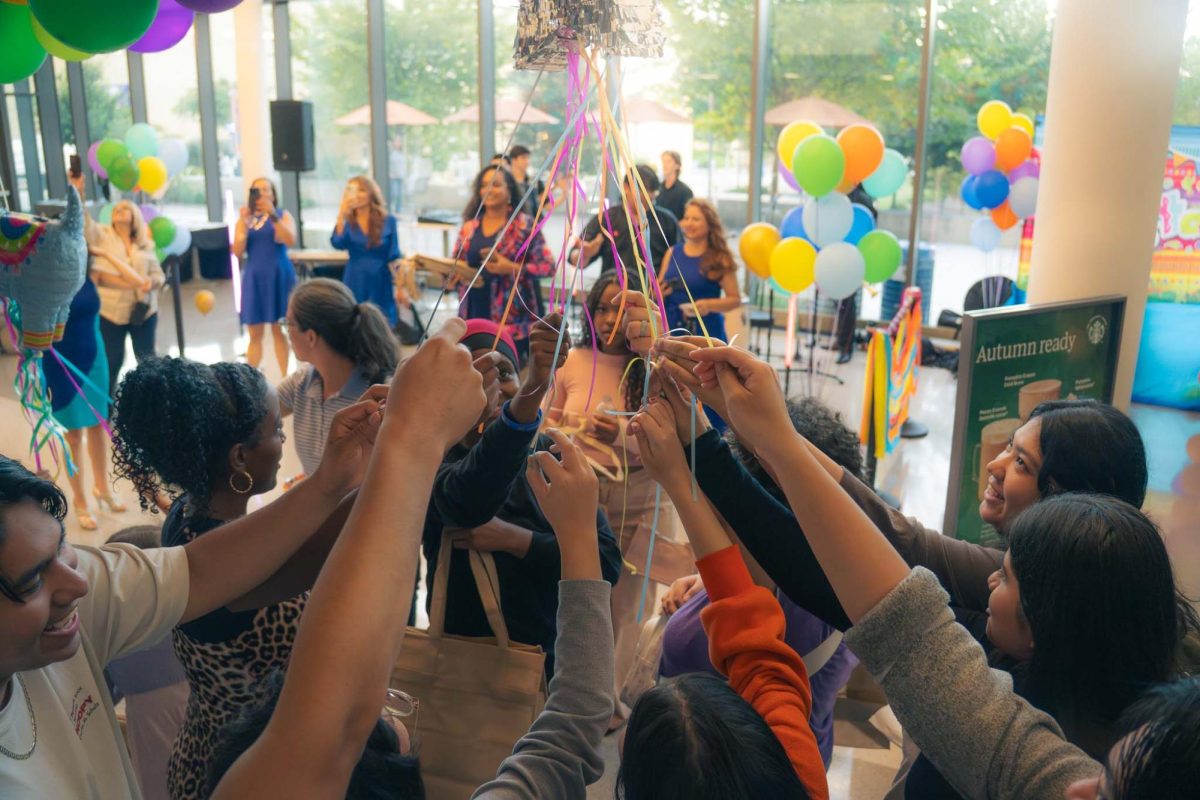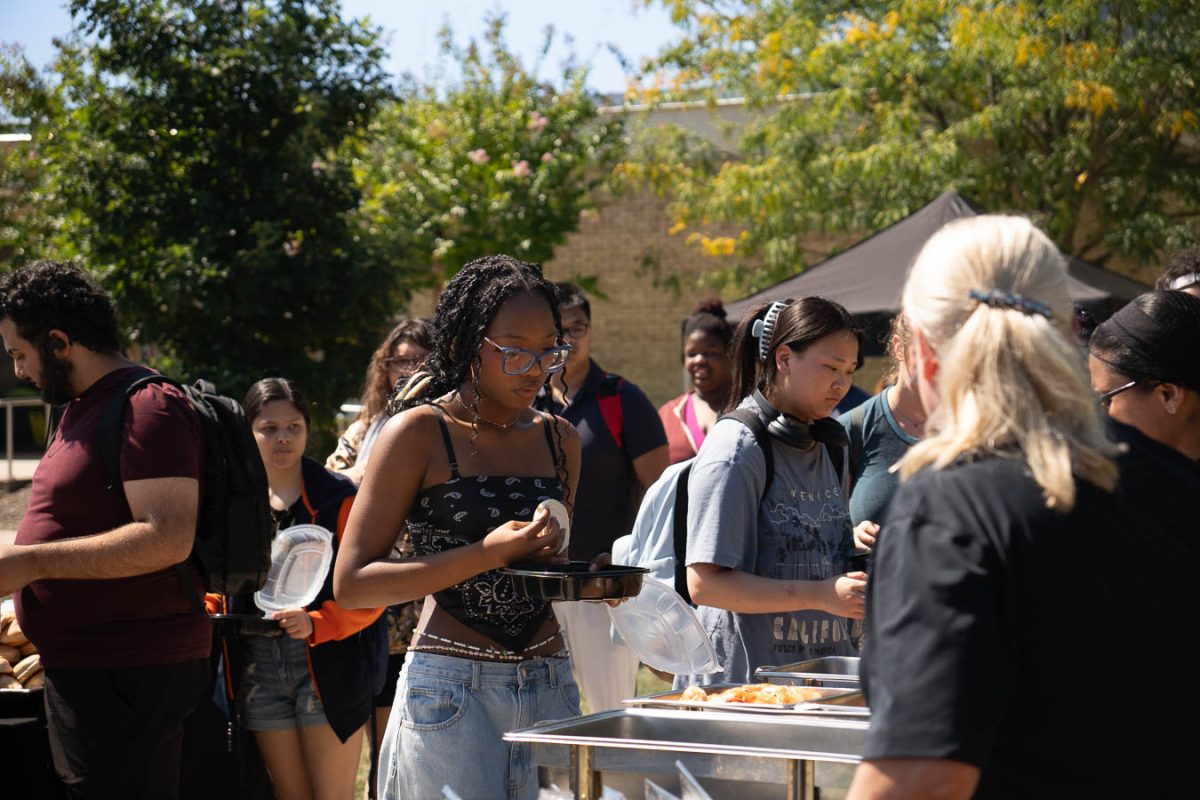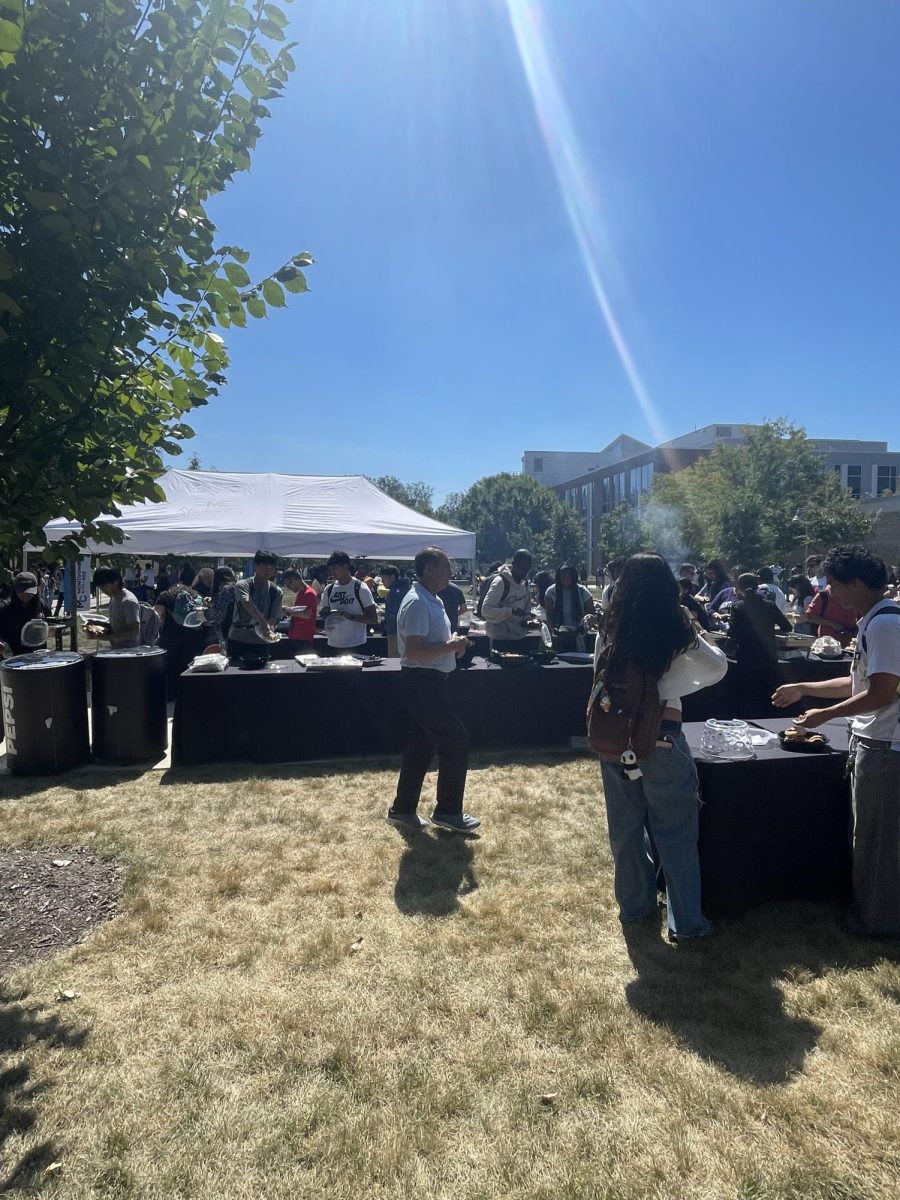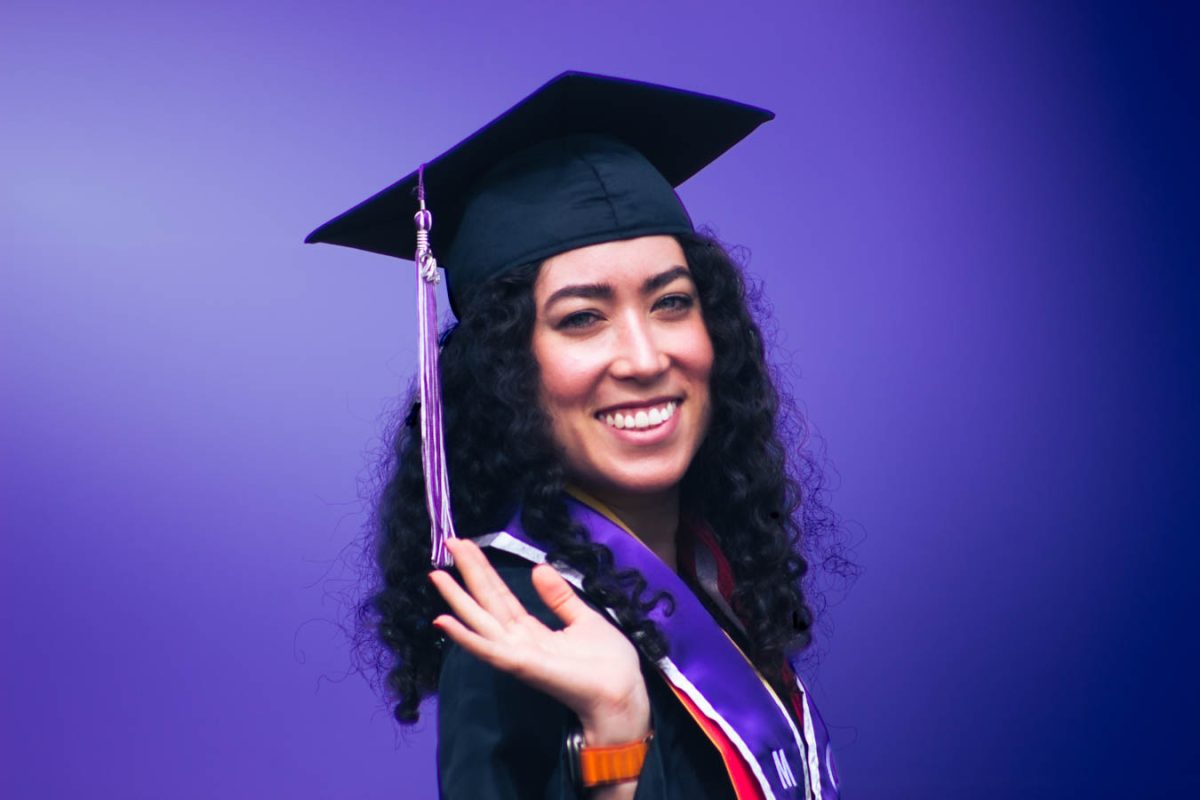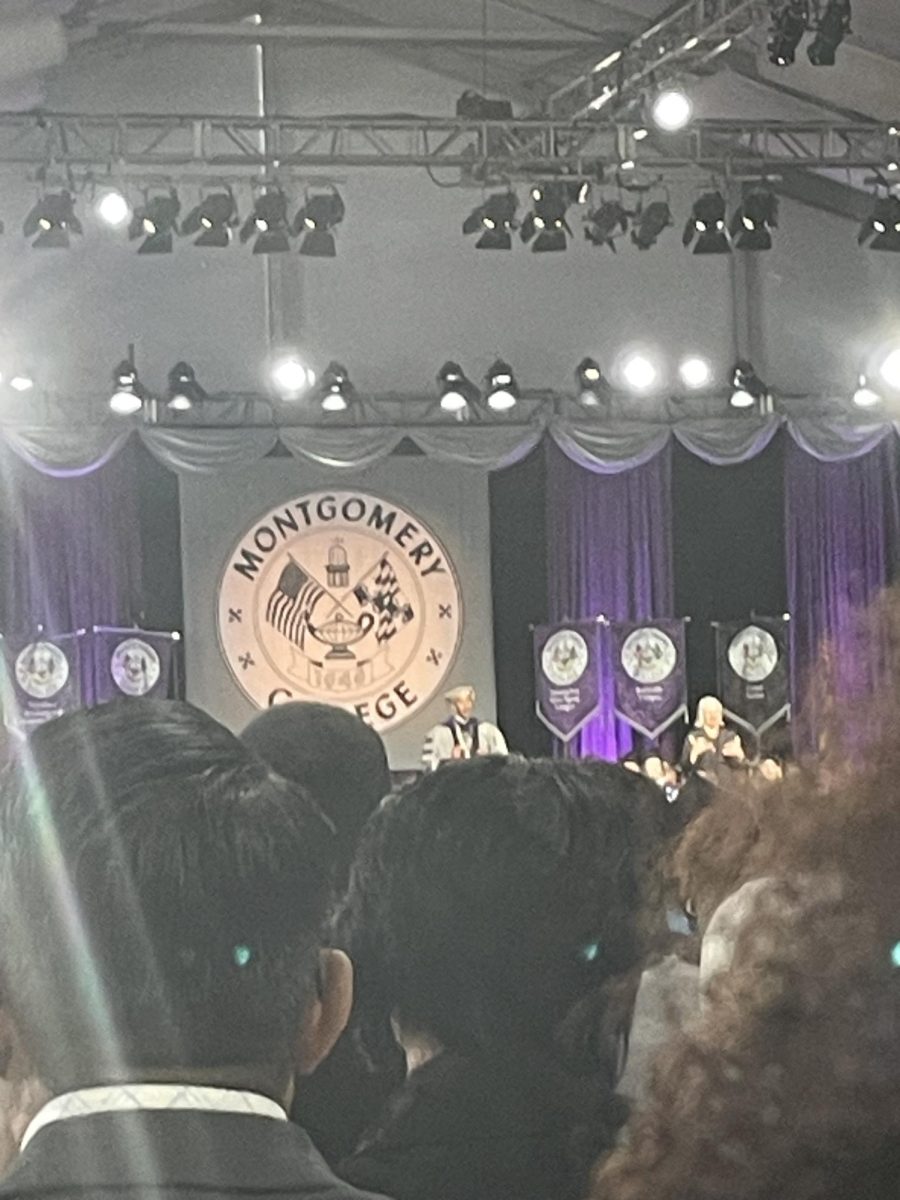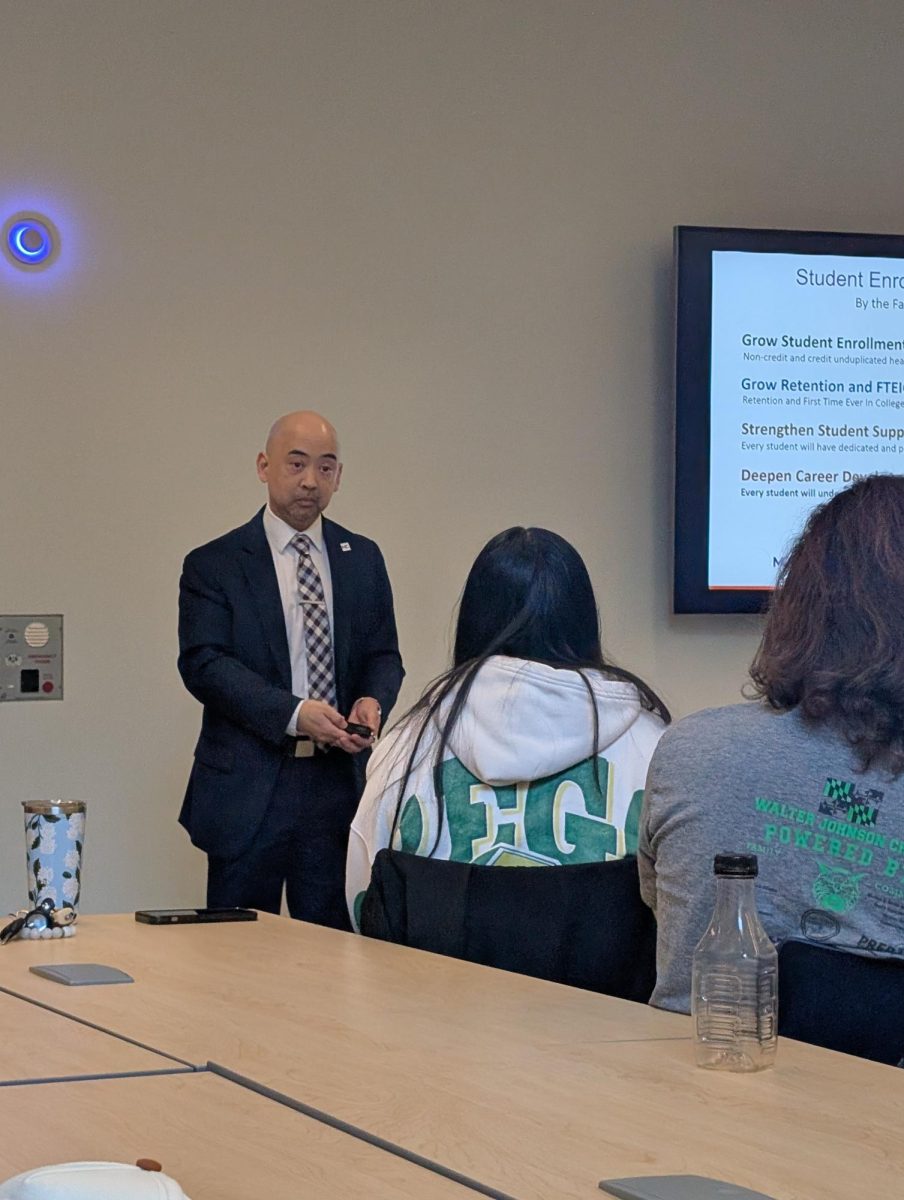On Saturday, February 24th, 2024, Montgomery College (MC) sponsored an enriching all-day service learning trip to the Steinbruck Center at Luther Place Memorial Church in Washington, D.C. This event, part of celebrations of Black History Month undertaken by the Rockville Campus’s Office of Student Life’s Service Learning office, aimed to deepen the students’ engagement with social justice issues.

The event featured a diverse group of speakers, including Rachelle and Nikkie from the National Coalition for the Homeless, Katy and Jackie from Ward 2 Mutual Aid in Washington D.C., and Karin Selland, the Director of the Steinbruck Center, enriching the experience with a wide range of perspectives on community activism and support. Due to time constraints, we were unable to complete the planned service project, and shifted to a “day of community learning and dialogue” instead.
The Steinbruck Center, nestled at Luther Place Memorial Church, stands as a beacon for social justice and community empowerment in Washington, D.C. Named in honor of Rev. William “Bill” N. Steinbruck, a pivotal figure in D.C.’s social justice scene, the center embodies his legacy of activism, compassion, and inclusivity.
According to Karin Selland, the Director of the Steinbruck Center, “the church has served as a place of reconciliation and community understanding since the Civil War. Union and Confederate sympathizers were able to worship and engage freely without fear of attack or retribution.” This approach has shaped the vital social justice work the church engages in today.
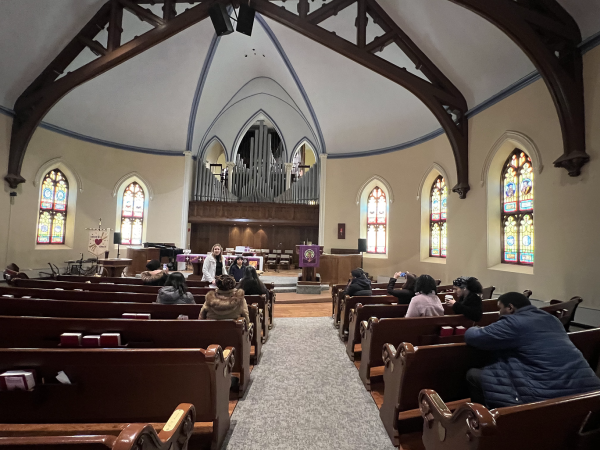
Through its programs, the Steinbruck Center inspires participants, including students from Montgomery College, to engage deeply with social justice issues, offering a transformative experience that extends beyond conventional educational boundaries.
Humanizing Homelessness Experiences
The opening discussion was not just a conversation starter, but a powerful testament to the acute crisis of homelessness that plagues our society. With a blend of hard facts and personal stories, Rachelle and Nikkie from the National Coalition for the Homeless, revealed the depth of despair many face daily. Maria Marques, a student participant, commented, “it’s important to learn more about this issue of homelessness, because anyone of us could become homeless any day, and we need to stand up for our neighbors.”

Homelessness, as detailed in the session, is not merely a lack of physical shelter, but a symptom of broader systemic failures—economic disparity, lack of affordable housing, inadequate mental health services, and systemic racism all contribute to this ongoing crisis.
Rachelle helped to put a human face to the struggles she endured. “Recognizing my PTSD was a breakthrough, shedding light on my reactions to past traumas. The realization that my drug use was not solely due to trauma, but also personal choice marked a pivotal moment in my recovery journey.”
Nikkie, the other guest speaker from the National Coalition for the Homeless, talked about how “issues could be lack of resources or structural deficits within the charitable institution.” For instance, the rising numbers of homeless individuals highlight not only the immediacy of their plight, but also the chronic nature of this issue, exacerbated by economic downturns and insufficient social safety nets.
She also shared painful experiences from her past, noting, “surviving childhood trauma taught me resilience, transforming me from victim to advocate. [When I got emancipated] at 15, it was my desperate bid for freedom and self-determination.”
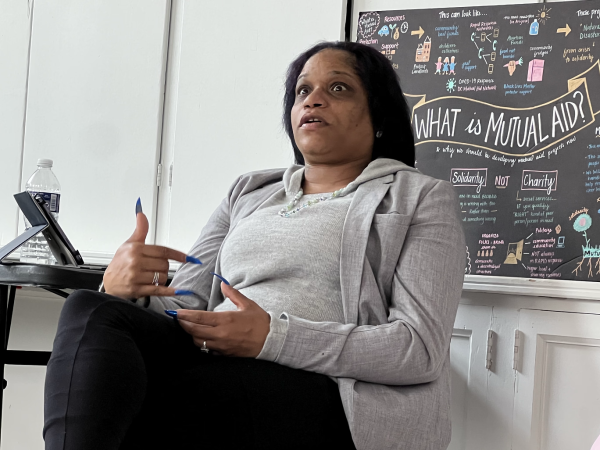
Several students shared their emotional views and how the speakers were able to connect with them personally. Advocate staffer and student participant Mhambi Musonda asked Rachelle how, as a woman of faith, she eventually forgave herself and others for falling down a dark path. She responded, “the road ain’t easy and will never be easy. Many sleepless nights I wondered how the hell I could learn to love God, myself, and others. But by learning to value relationships that are built on mutual respect and unconditional support, I undertook a spiritual awakening, guiding me towards self-reliance and faith.”
Another student participant, Amber Edmonds, shared her reactions to the discussions. “The concept of choosing to forgive oneself, as Rachelle mentioned, is so powerful. It’s something I’ve never considered as part of healing.”
Nikkie spoke of the cold nights on the streets, the struggle to find safety and dignity, and the constant battle against despair. As she told us during her speech, “there’s only so much that one organization, nonprofit, can do, especially if you don’t have the backing of other institutions or partners.” This underscores the need for community solidarity and support at all levels to ensure proper services are rendered for those who need it most.
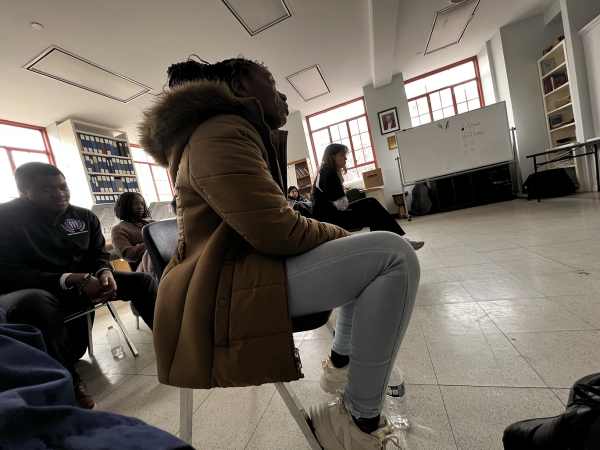
Rachelle concluded her speech by saying, “people are always seeking information, and you can’t cater to everyone because, again, you don’t have enough resources or partners within the community to assist you.”
Nikkie ended by encouraging our group to always stay strong and keep fighting, even if the odds seem impossible. In her words, “obtaining my high school diploma as an adult symbolized overcoming my turbulent past and embracing my potential to fight for my community. You’re getting your [college] diplomas, so use that knowledge to be the changes you want to see in your communities.”
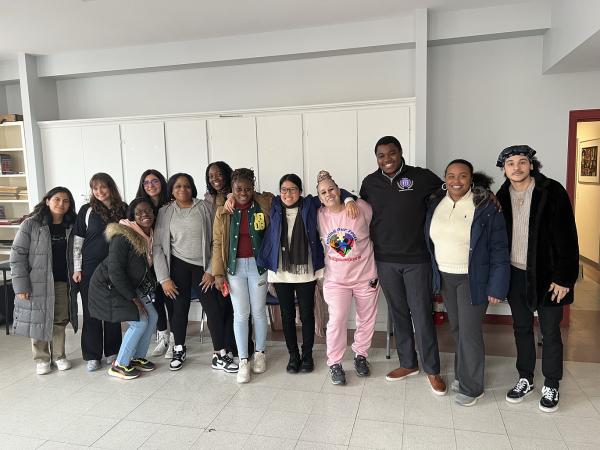
As the presentation concluded, the message was clear: the homelessness crisis reflects our collective failures and moral tests as a society. It demands our attention and actions, challenging us to build a more just, compassionate, and inclusive community where everyone has a place to call home.
Mutual Aid vs Solidarity in Communities
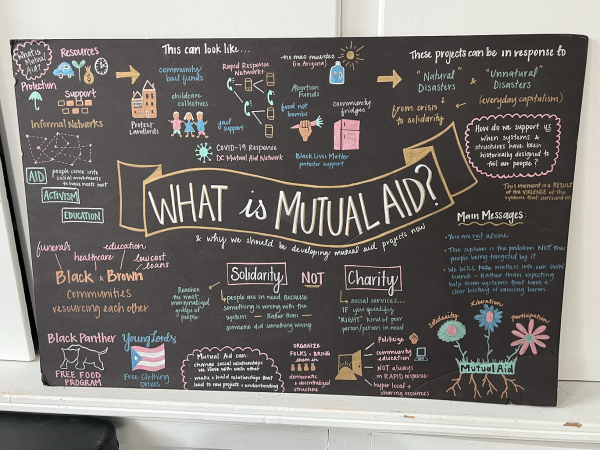
The exploration of mutual aid as a cornerstone of empowerment and recovery was a pivotal element of the next discussion, engaging participants in a rich discussion about the essence and impact of community-driven support. This concept, fundamentally distinct from traditional notions of charity, emphasizes reciprocity and mutual respect among community members, advocating for a partnership-based approach to aid.
Katy and Jackie from Washington D.C.’s Ward 2 Mutual Aid community nonprofit, delved into the theoretical underpinnings of mutual aid, tracing its roots to longstanding traditions of communal solidarity. They expanded on how mutual aid operates as a dynamic, adaptable framework that addresses immediate needs while fostering long-term, sustainable community development.
Several students expressed confusion between the differences of mutual aid and charity. Asked
student participant Denisia Jocktane-Akagah, “what does it mean for community groups to be truly representative of the people they serve?”
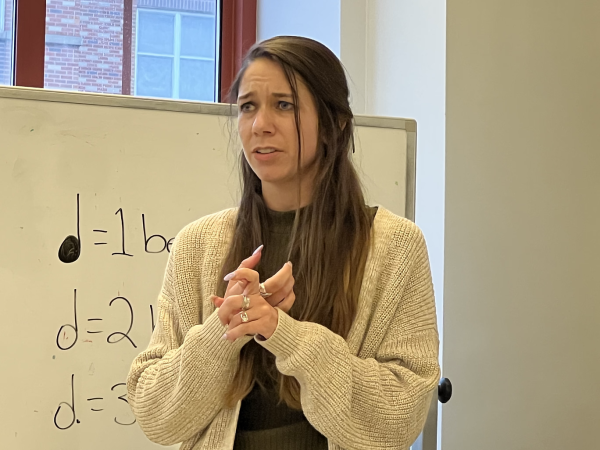
The director of the Steinbrook Center, Karin Selland, told us, “Puerto Rico is such a good example and something that comes up when we talk about mutual aid, especially with US aid or in federal Federal Emergency Management Agency (FEMA) and that sort of thing coming to the island after the hurricane versus so much happening on the ground.”
During the discussion, we participated in numerous brainstorming activities meant to get ourselves thinking about the benefits and challenges related to traditional charity models versus more inclusive mutual aid models. We split off into groups and used sticky notes to demonstrate our points.
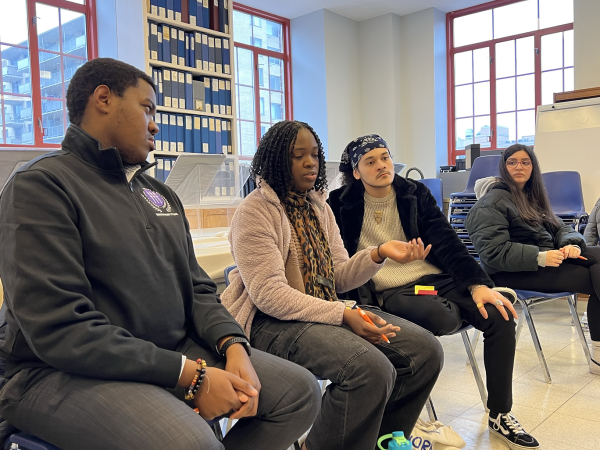
Jackie shared Washington D.C.’s language access law as a prominent example of a successful mutual aid initiative in the community. However, she explained that, “under this law, any government service needs to be able to provide translation services that are needed, and it is almost never actually enforced. Given the diverse number of immigrants of which English is not a first language, I think it’s not representative of the people that are affected. So if one system has faults or things that are not inclusive, how do you meet those needs or fill the gaps?”
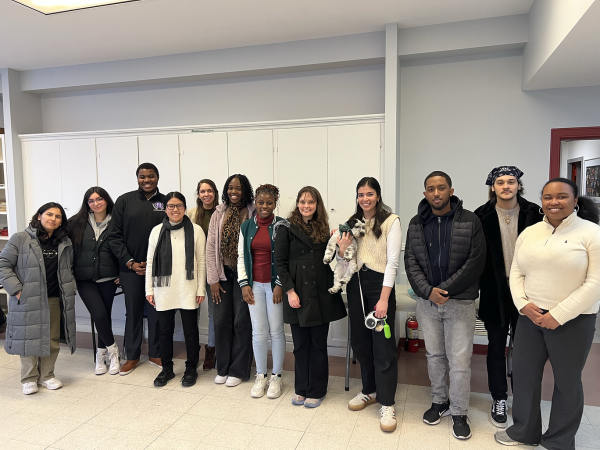
The exploration of mutual aid and recovery at the event was an invitation to reimagine the foundations of community support. She challenged participants to consider how they could actively engage in or support mutual aid initiatives, underscoring the importance of solidarity, empathy, and collective action in building a more resilient and compassionate society.
Luther Place Walking Tour: The Faces of Gentrification
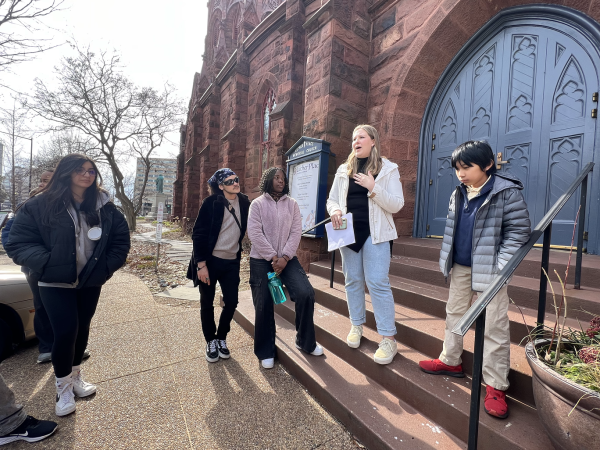
The walking tour during our service-learning trip to the Steinbruck Center provided an immersive experience into the historical and cultural landscape of Washington D.C. Participants explored the significance of St. Francis and Martin Luther statues, symbolizing devotion to nature and the power of non-violence and education, respectively. The tour highlighted the profound impact of Martin Luther King Jr., with his march route and the aftermath of his assassination shaping the narrative of 14th Street.
This area, once marred by riots, now stands testament to resilience and community solidarity, as depicted through murals and the transformative story of the neighborhood facing gentrification. As Karin told us, “The number one cause of homelessness is lack of affordable housing units.”
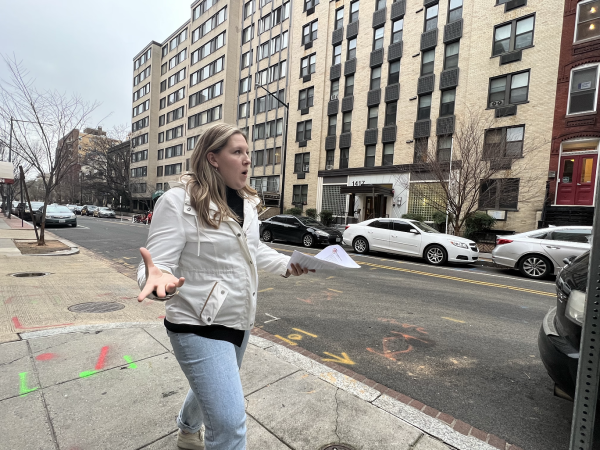
When we stopped by a historically gentrified housing complex as part of the tour, student participant Maria Marques remarked that, “gentrification didn’t just happen in the past. It is still happening today in areas right in front of us. We need to do what we can to educate ourselves and fight for the rights of everyone.”
The Spring 2024 Black History Month Day of Service at the Steinbruck Center was a clarion call to action, challenging each participant to recognize their role in the broader societal tapestry. It underscored the importance of empathy, informed action, and the power of community in addressing the complexities of homelessness and recovery.
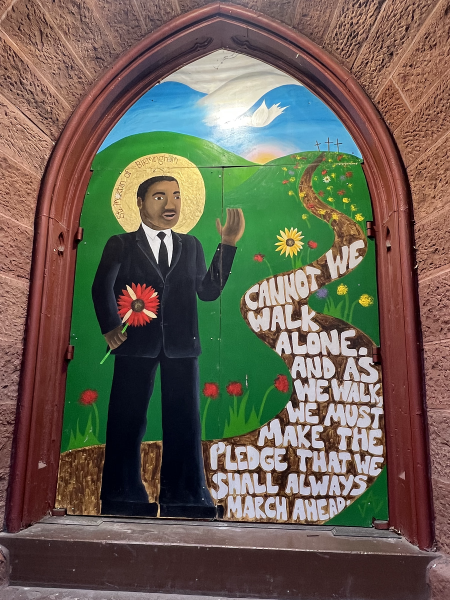
As attendees departed, Libby McClayton, the Rockville Service Learning Coordinator passionately shared, “this session challenged us to think critically about how we serve communities, respecting their needs and autonomy. It was a testament to the power of service learning in fostering a deeper understanding and commitment to addressing societal issues.” This event marked not an end, but a beginning: the start of a collective journey toward creating a more compassionate, supportive, and inclusive society for all.
Note: Advocate Assistant Editor Rebecca Fuchs and Advocate staffer Mhambi Musonda were participants in this event.


